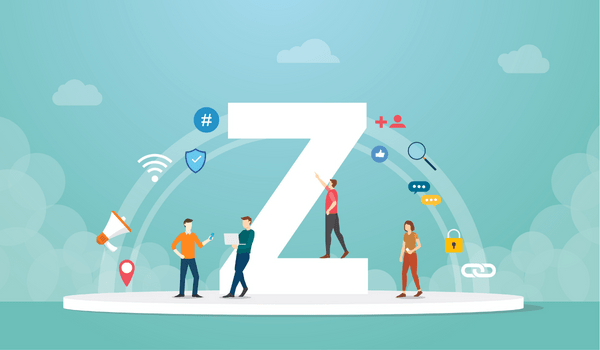This is the dawn of GenZ, a more digitally native generation. It’s been a few years since this new generation has entered the workplace and they have brought in their own knowledge, their experiences, and new perspectives to the workplace. Slowly they have started influencing and changing workplace practices and culture.
“We get a new and fresh perspective on work as the new generation steps forward into the corporate culture, and GenZ is one undeniable force in shifting the same,” states Uma Rao, CHRO, Granules India.
With a different approach and perspective for every problem, they bring in some freshness.
They force companies to pursue work-life balance
They demand flexibility as they have been used to working in a hybrid model for quite some time now. For them it’s not just their jobs but is the pursuance of a life beyond where they engage in their hobbies and other ambitions. For this they look for an environment that is not controlling but facilitating.
Chandrasekhar Mukherjee, senior president- HR, Bhilosa Group says, “They need the perfect work-life balance, not just to pursue their ambition, but in a constant zeal to upgrade themselves.”
The new generation has pushed organisations to be more flexible in the work timings, and it’s no longer just 9am – 5pm.
“They need the perfect work-life balance, not just to pursue their ambition, but in a constant zeal to upgrade themselves.”
Chandrasekhar Mukherjee, senior president- HR, Bhilosa Group
Not just pay checks anymore
They are not interested in just pay-checks. They need something extra. They look for more benefits specifically non-traditional ones. This is why we already see a change – as companies have started becoming more and more innovative with leaves and benefits. It’s no longer just medical benefits and some sick and casual leaves.
They give more impetus to their pride and values rather than just a monthly paycheck. “Given a choice between a healthy culture that matches with their values and ethos versus a high paycheck, they are likely to choose the former,” shares Rao.
Socially Active Organisations
Gen Z has demonstrated greater empathy to societal challenges. They expect their respective organisations to be more socially responsible and have a cultural ethos that addresses these issues upfront. “They also expect the leadership to be more responsive and accountable,” says Mukherjee.
This means that companies have to clearly state its socially responsible practices and not just a traditional job description in order to attract this new segment of talent.
“They are more confident and are aware of their capabilities. Besides they are always in a learning mode.”
Uma Rao, CHRO, Granules India
New team structures
One thing is for sure that this generation doesn’t believe in hierarchy unlike their predecessors. On top of it they are fearless, want to be heard and they practice open conversations without minding the traditional hierarchy. They want a balanced approach in both individualism and teamwork.
This is why companies need to give them their individual space and freedom and at the same time encourage team bonding with social activities.
More experimentation
Thiru A. Former president- group HR, Cadila Pharmaceuticals, opines, “Organisations are required to give them space for experimenting as it’s not about changing them but shaping them for the future.”
GenZs are not just more creative and innovative in their approach, they are also more experimental. They also want their organisations to follow the same. They push companies to be more experimental and get rid of rigid practices.
“GenZs can surprise you with their research and analytical skills while also being passionate about their career paths. They thrive off an organisation that encourages them to excel in their areas of interest,” says Mukherjee.
“They are a confident lot and are aware of their capabilities. Besides they are always in a learning mode,” opines Rao
However companies need to work on this front. The fact is most companies are still not prepared to manage their level of diversity.
For instance, businesses need to accommodate or make space for neurodiversity, health-based diversity or cultural or lifestyle oriented diversity.
“Organisations are required to give them space for experimenting as it’s not about changing them but shaping them for the future”
Thiru A, former president – group HR, Cadila Pharmaceuticals
New Recruitment Practices
The new generation is also pushing companies to abandon age-old hiring or recruiting practices and adopt new ones. In order to hunt required GenZ talent, even LinkedIn is considered to be old school. Rather they can be found and tapped on other new age and unconventional social platforms. While their choice of platforms keep changing very fast, they aren’t great believers of pre-hire assessments. Rather they want a face to face discussion with utmost clarity.
Remember, they don’t shy away from asking questions of any kind and don’t undermine their power of bargaining.
So the big question is, will they be able to change the culture?
Thiru comments, “A company culture is deep rooted that can’t be uprooted so easily. However, some change in fertiliser and methods of watering may enable the tree to get sunlight.”
“Change happens only when the organisation is willing to change,” says Rao.
“Loss in motivation at the workplace, quality drop in projects and assignments, people not committed to their work are some of the early signs to notice that a change is now required,” she adds.
However one aspect that organisations may not like in this new change is lack of loyalty.
“GenZs believe in what’s in it for me approach, and there are possibilities that this causes a dent in the loyalty,” concludes Mukherjee.






